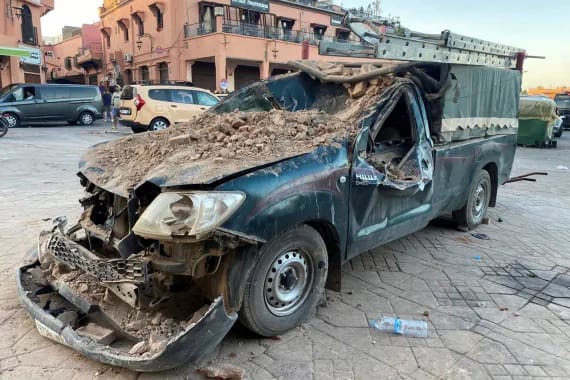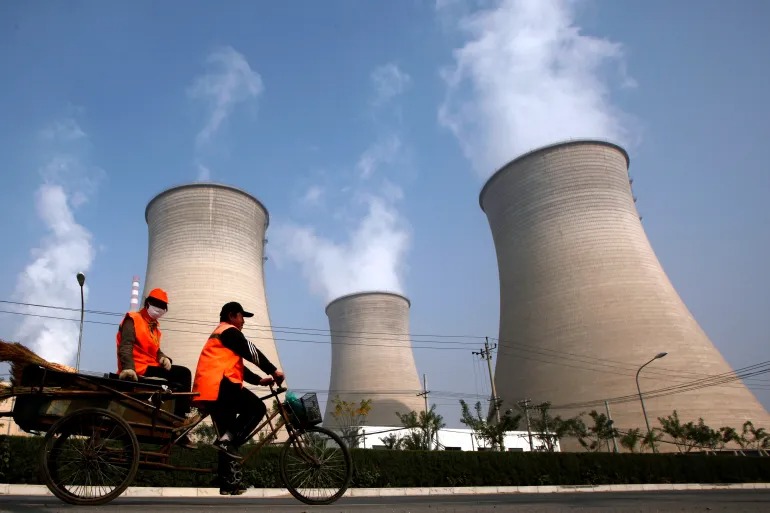In a catastrophic turn of events, Morocco was rocked by a powerful earthquake that struck near the popular tourist destination of Marrakesh, leaving behind a trail of devastation and despair. The earthquake, measuring 6.8 on the Richter scale, claimed the lives of at least 632 people and left 329 others injured, with 51 in critical condition, according to the Ministry of the Interior. The impact of this natural disaster was not limited to Morocco, as tremors were felt in coastal cities like Rabat, Casablanca, and Essaouira. The tragic incident has sent shockwaves through the nation and garnered international support and condolences.
Marrakesh Residents Share Terrifying Ordeal
The city of Marrakesh, known for its vibrant culture and historical significance, bore the brunt of the earthquake’s fury. Abdelhak El Amrani, a 33-year-old resident of Marrakesh, vividly described the moment when the disaster struck. “We felt a very violent tremor, and I realized it was an earthquake,” he recounted. “I could see buildings moving. We don’t necessarily have the reflexes for this type of situation.” Panic spread rapidly as people rushed outside for safety. Power and communication networks were disrupted temporarily, compelling everyone to stay outdoors.
Faisal Baddour, an engineer residing in Marrakesh, shared his harrowing experience of feeling the earthquake three times within his building. “It was as if a train was passing close to our houses,” he said. The chaos and panic led many families to sleep outside in fear of aftershocks. Michael Bizet, a Frenchman who owns riad houses in Marrakesh’s old town, described the situation as “total chaos, a real catastrophe, madness.” Video footage and images on social media showed collapsed walls and a minaret partially destroyed in Jemaa el-Fna square.
Urgent Response and Support
Morocco’s Interior Ministry wasted no time in mobilizing all necessary resources to aid the affected areas. The regional blood transfusion center in Marrakesh appealed to residents to donate blood to help the injured. Reports emerged of a family trapped in the rubble of their house in Al-Haouz, near the earthquake’s epicenter. The situation was compounded by disrupted internet connectivity due to power cuts.
The United States Geological Survey’s PAGER system issued a red alert, indicating extensive damage and the likelihood of a widespread disaster. Past events with such alert levels have required national or international responses. The earthquake was reported as the most powerful in Morocco’s history, with its effects felt even in neighboring Algeria, though without causing damage or casualties.
International Outpouring of Condolences
Leaders and heads of state from around the world expressed their condolences and offered support to Morocco in the wake of this devastating earthquake. Pakistani Prime Minister Anwaar ul Haq Kakar, German Chancellor Olaf Scholz, Indian Prime Minister Narendra Modi, and Spanish Prime Minister Pedro Sanchez were among those who extended their sympathies to the Moroccan people. Russian President Vladimir Putin and Turkish President Recep Tayyip Erdogan pledged support and assistance, while the African Union Commission expressed deep sorrow over the tragedy.
French Foreign Minister Catherine Colonna and French President Emmanuel Macron offered solidarity and readiness to provide aid. The head of the African Union Commission, Moussa Faki Mahamat, conveyed sincere condolences to the Moroccan people and the families of the victims.
In the face of this heart-wrenching disaster, Morocco finds itself grappling with loss and devastation, while the international community stands united in offering support and solace during this trying time. The road to recovery will undoubtedly be long and challenging, but the resilience of the Moroccan people and the outpouring of global compassion serve as beacons of hope in the midst of this tragedy.
















